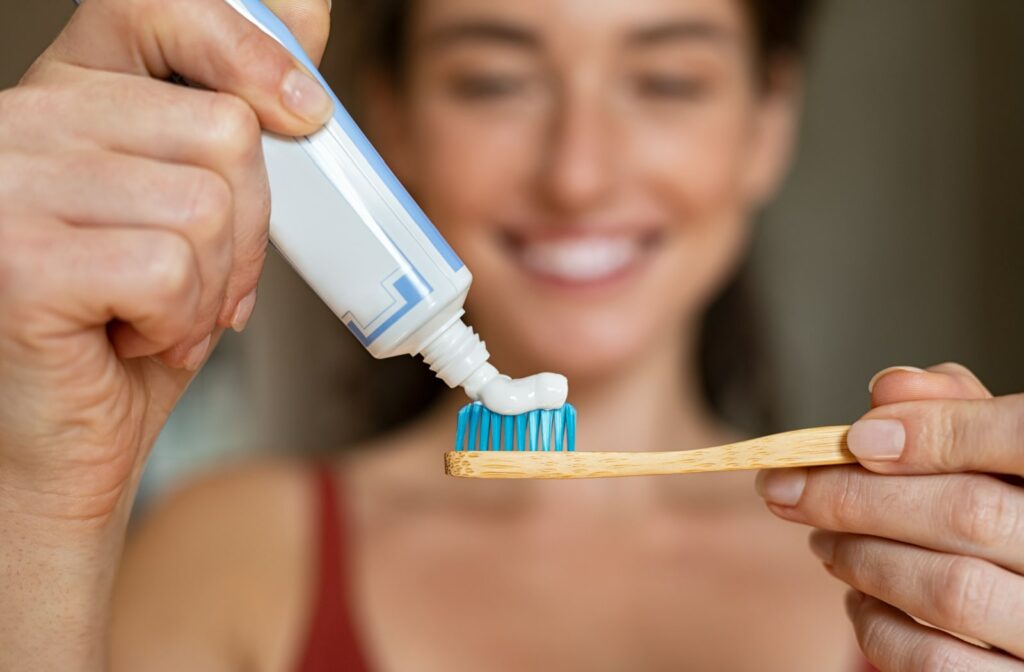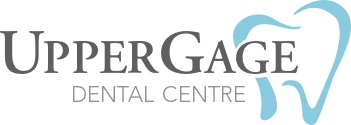Brushing your teeth is an essential part of your dental health routine. It is one of the first things you do in the morning and the last before bed. Brushing your teeth twice a day is the minimum, although brushing after every meal or after eating sugary, sticky food is a good idea.
A good oral hygiene routine, alongside professional dental cleanings every 6 months, can help support a healthy mouth.
When Should You Brush Your Teeth?
While you may have heard that brushing your teeth a couple of times a day is enough, others may prefer to brush more frequently. Dentists recommend brushing your teeth at least twice daily for 2 minutes each, morning and night.
However, if you consume food and drinks high in sugar and acids frequently throughout the day, it’s ideal to brush your teeth after each meal. This helps inhibit the buildup of plaque and bacteria that can eventually lead to cavities and gum disease.
How to Brush Your Teeth
Brushing your teeth may seem simple, but there is a right and wrong way to do it. It is essential to use a fluoride toothpaste and a soft-bristled toothbrush. Start by wetting the toothbrush and adding a pea-sized amount of toothpaste. Angle the brush at a 45-degree angle towards your gum line, then gently move it back and forth in circular motions.
Focus on all surfaces of your teeth, including the inside, front, and back. Remember to brush your tongue and the roof of your mouth to eliminate any bacteria that can cause bad breath.
Brushing for Children
Children’s teeth are just as susceptible to tooth decay and gum disease as adults. It is crucial to start brushing your child’s teeth as soon as they erupt and supervise them while they brush until they are 7 to 8 years old.
When brushing children’s teeth, use a toothbrush with soft bristles and a rice-sized amount of fluoride toothpaste. Teach them to brush their teeth in a circular motion and spit out the toothpaste once finished. Their daily routine should also include flossing to clear food particles between the teeth.
Brushing with Braces
Oral hygiene is crucial for people with braces, as food particles can easily get trapped in the brackets and wires. Use a soft-bristled toothbrush and brush in a circular motion, removing any food particles around the brackets and wires. There are several ways to floss with braces, including:
- Floss threaders
- Interdental brushes
- Water flossers
What Are the Risks of Poor Oral Hygiene?
Your oral health is directly linked to your overall well-being, and poor oral hygiene can lead to many health risks that can be severe if neglected.
Gum Disease and Tooth Decay
Poor oral hygiene can cause a buildup of plaque bacteria in your mouth. Plaque produces acids that progressively erode your teeth, softening and eventually causing cavities that penetrate the enamel. When plaque accumulates, it causes inflammation of the gums, leading to gum disease.
Prolonged gum disease can damage the bones and tissue in the mouth, causing tooth loss. Brushing your teeth twice daily can prevent bacteria accumulation, gum disease, and tooth decay.
Heart Disease
There is a link between gum disease and heart disease. Research shows that the bacteria that cause gum disease can enter the bloodstream, increasing the risk of developing heart disease, stroke, and other cardiovascular conditions.
Brushing your teeth twice a day, flossing, and regularly visiting your dentist can prevent the accumulation of bacteria in your mouth that can lead to gum disease.
Diabetes
Poor oral hygiene has been linked to diabetes. Research shows that unhealthy bacteria in your mouth can affect sugar levels in your body, leading to more inflammation and, eventually, insulin resistance. Regular dental check-ups can help identify early signs of oral infections, primarily if one has diabetes.
Those with pre-existing diabetes are at a higher risk of developing oral health problems like gum disease and tooth decay, so taking care of your teeth at home by brushing regularly can support your overall health.
Oral Cancer
Poor oral hygiene has been linked to cancers in various parts of the mouth, including:
- Gums
- Tonsils
- Tongue
- Salivary glands
- Throat
Tobacco use and excessive alcohol consumption are known risk factors for oral cancer due to their carcinogenic potential. The prolonged accumulation of plaque and bacteria in the mouth can intensify the carcinogens that cause oral cancer to develop.
Tips for Better Oral Hygiene
Brushing is crucial for oral health, but it’s only one of many steps that contribute to preventative dental care.
Flossing
Flossing your teeth is equally important in maintaining good oral hygiene. Flossing helps remove food particles and plaque from in-between your teeth, which your toothbrush cannot reach.
Flossing should be done at least once a day, but if you find it difficult to floss with standard string, you can try using interdental cleaners such as water flossers.
Mouthwash
Mouthwash helps kill germs and bacteria in your mouth, keeps your breath fresh, and prevents gum diseases. Rinse with mouthwash after brushing and flossing, and choose a fluoridated type to strengthen and protect your enamel.
Healthy Diet
A healthy diet is crucial for maintaining good oral hygiene. Limit sugary and sticky foods that cling to your teeth and promote plaque growth. Instead, consume fibrous foods such as fruits and vegetables that help clean your teeth and encourage healthy saliva production. Saliva helps neutralize acid and protects your teeth from decay.
Regular Dental Check-Ups
Your dentist can identify any dental issues early and provide treatments before any significant damage is done. A dental check-up every 6 months is recommended, which includes a professional cleaning and an assessment of the health of your teeth and gums.
The Value of Brushing
Brushing your teeth is one of the simplest yet most effective habits you can form for your dental health. Schedule an appointment with Upper Gage Dental to support your oral well-being with frequent cleanings and exams to keep your smile bright.



